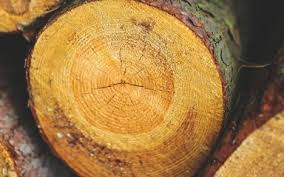Windows are essential parts of our homes. They let in natural light, provide ventilation, and offer views of the outside world. But like everything else, they deteriorate with time. Understanding the lifespan of windows is crucial for homeowners, as it helps with timely replacements and budgeting.
The Average Window: 15-30 Years
Most windows have an average lifespan of around 15-30 years. Several factors contribute to this range, including the type of window material, climate, quality of installation, and how well you maintain them. Keep in mind that well-maintained windows may last longer, but it’s wise to start considering replacement options once they approach their second decade.

Factors Affecting Window Lifespan
- Window Frame Material: Each material has its strengths and weaknesses:
- Wood: Classic and beautiful, but requires regular maintenance to prevent rot and warping. Lifespan: 30+ years.
- Vinyl: Extremely popular due to their affordability, energy efficiency, and low maintenance. Lifespan: 20-40 years.
- Aluminum: Durable and less prone to weather damage. However, less energy-efficient than other options. Lifespan: 20-30 years.
- Fiberglass: Among the strongest, with excellent insulation and resistance to weather. Lifespan: 20-40 years.
- Climate: Windows in harsh climates with extreme temperatures, heavy rain, or salty air can degrade faster.
- Installation Quality: Improper installation severely shortens a window’s lifespan. Gaps and poor sealing accelerate wear and tear.
- Maintenance: Regular cleaning, lubrication, inspection for damage, and timely repairs significantly extend a window’s life.
Read Also: How to Close a Window Blind
Signs Your Windows Need Replacing
It’s crucial to identify the signs that your windows are reaching the end of their lifespan to avoid further damage or energy losses. Here’s what to watch out for:
- Difficulty Opening and Closing: Jamming, sticking, or windows that require excessive force usually indicate warping or issues with the hardware.
- Drafts and Air Leaks: Feeling cold air seeping through even when the window is closed is a clear sign of seal failure.
- Condensation between Panes: This only happens in double or triple-pane windows and suggests a broken seal, compromising insulation.
- Water Leaks: A sign of significant damage needing immediate attention to prevent structural problems.
- Excessive Outside Noise: Newer windows should significantly block outside noise. Increased noise indicates a deteriorating seal.
- Higher Energy Bills: Drafty windows let warm or cool air escape, leading to higher energy costs.
- Visible signs of Decay: Rotting wood, peeling paint, or rusting metal mean your window needs replacement urgently.
Benefits of Replacing Old Windows
Replacing old, failing windows delivers multiple advantages:
- Improved Energy Efficiency: Modern windows offer superior insulation, saving you money on heating and cooling costs.
- Enhanced Comfort: Reduce drafts and maintain consistent temperatures throughout your home.
- Increased Home Value: New windows are an attractive feature, adding value to your house.
- Noise Reduction: Enjoy a quieter, more peaceful home.
- Aesthetic Upgrade: New windows can improve your home’s curb appeal and overall appearance.
Is it Better to Repair or Replace Windows?
Deciding whether to repair or replace depends on the extent of the damage and the age of your windows. Minor repairs are usually possible for younger windows. However, if multiple windows are approaching or exceeding 20 years, replacement might be the wiser investment for long-term benefits.
Choosing the Right Replacement Windows
- Seek Professional Guidance: Consult reputable window companies for assessments and recommendations.
- Energy Efficiency: Look for Energy Star-certified windows for optimal performance.
- Window Style: Choose styles that complement your home’s architecture and your needs.
- Warranty: Opt for windows with good warranties covering materials, labor, and seal failure.
Final Thoughts
While windows are built to last, they are not immortal. Knowing their average lifespan, recognizing signs of deterioration, and understanding the benefits of replacement allows you to make informed decisions for a comfortable and energy-efficient home.




